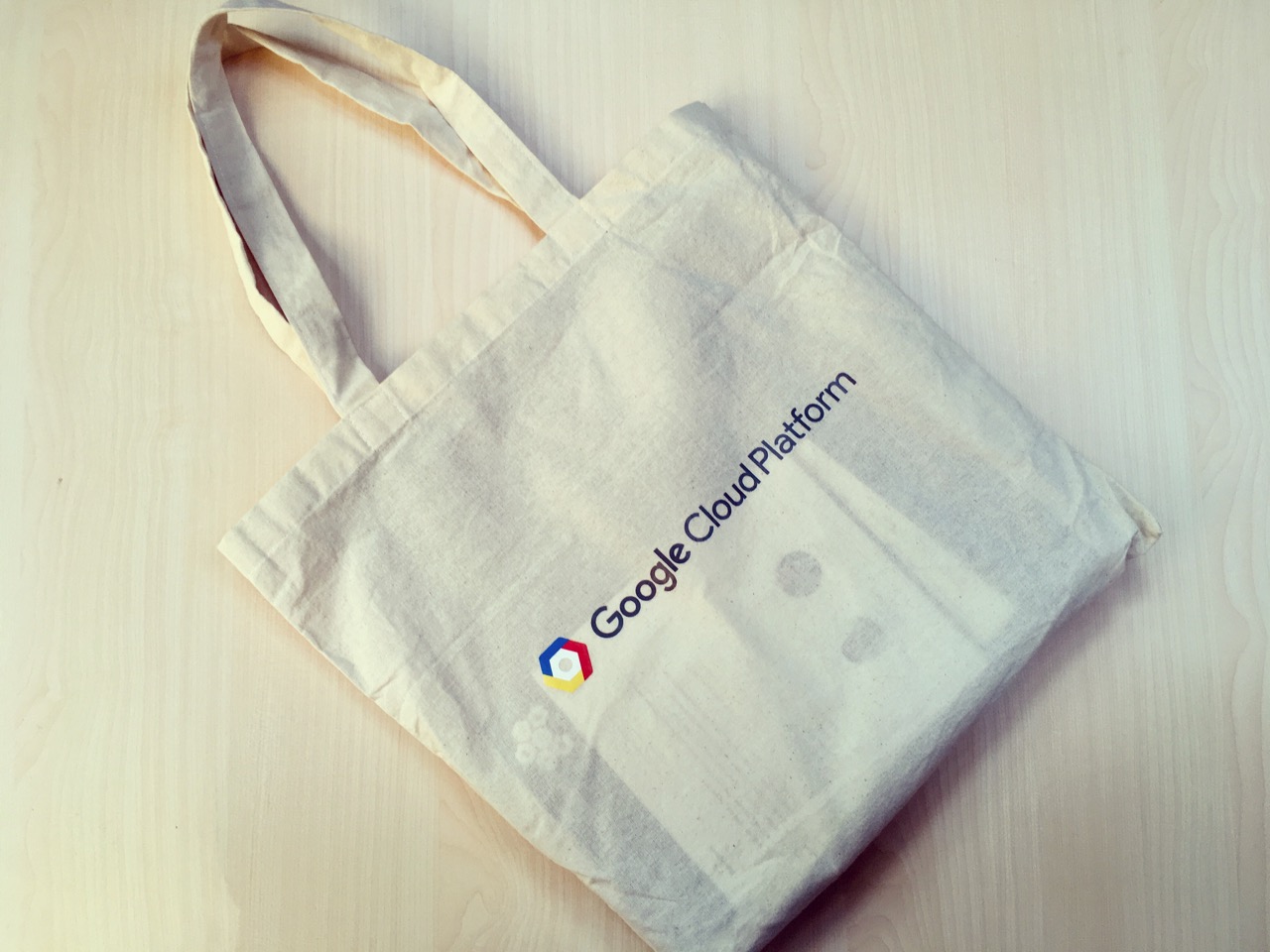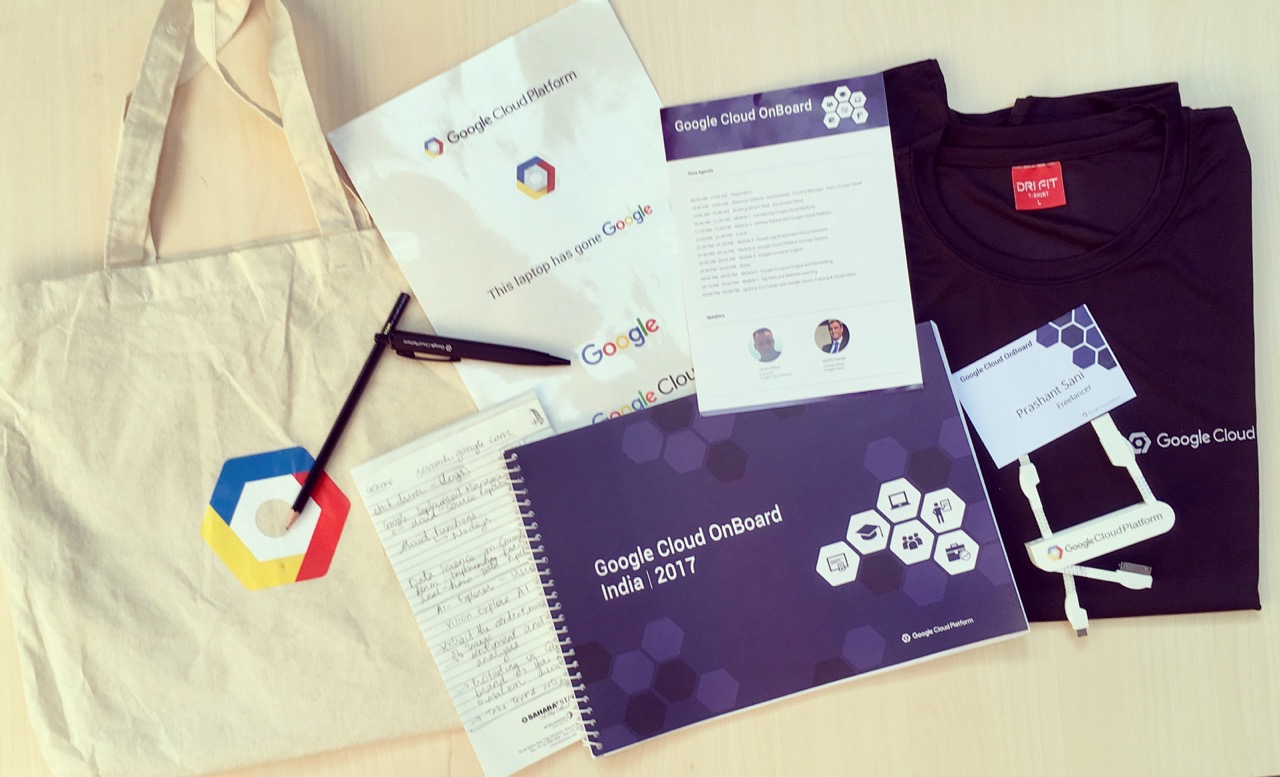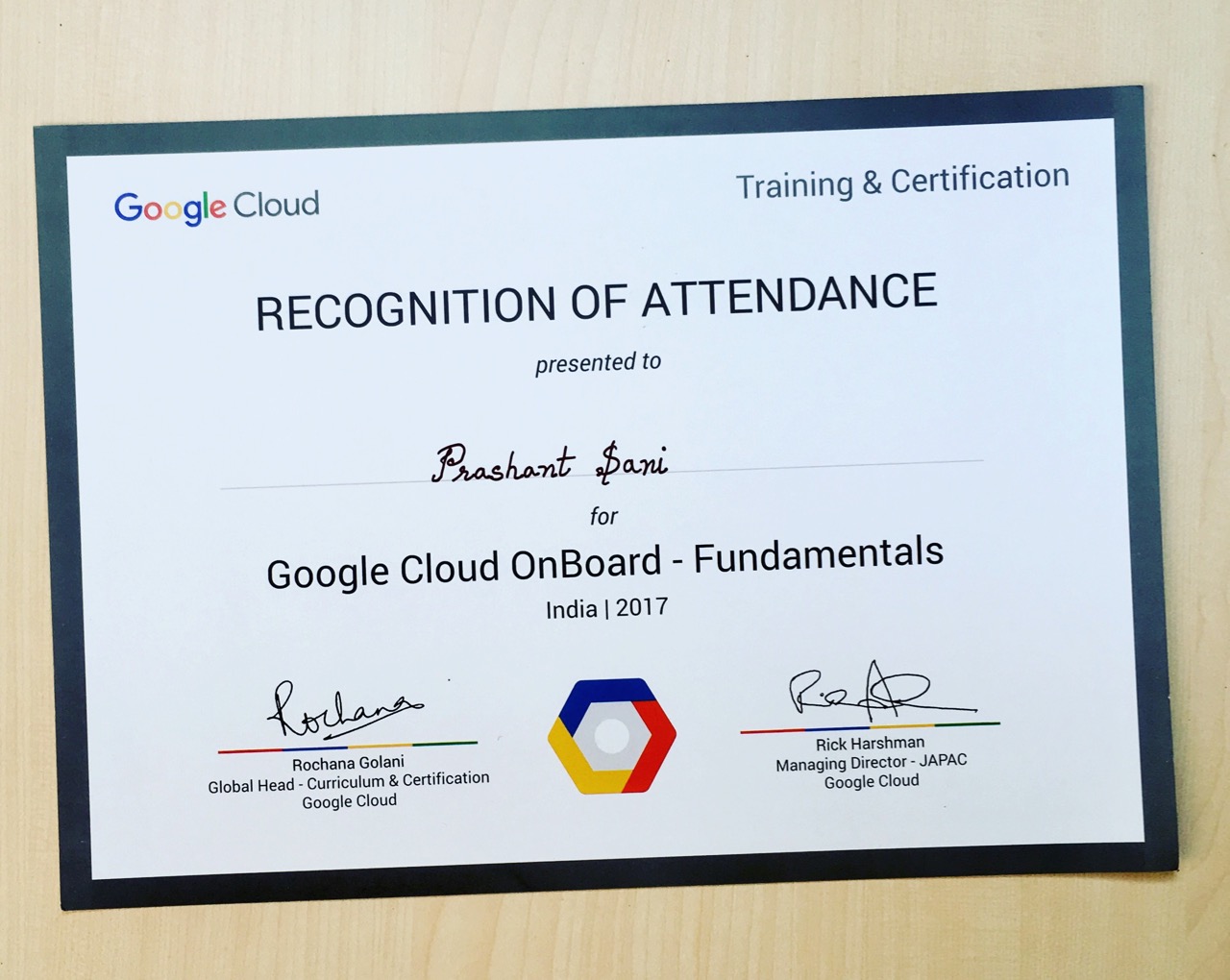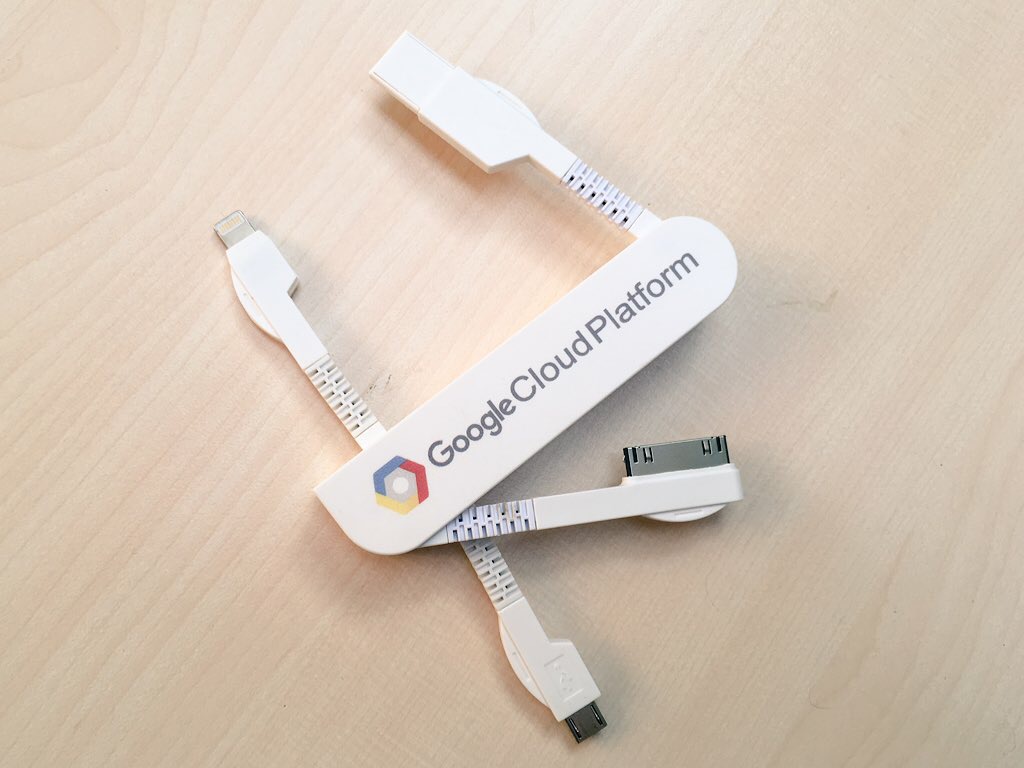Google Cloud Platform OnBoarding Training Conference, Mumbai 2017

I attended Google's Cloud Platform's onboarding training event yesterday at Hotel Sahara Star, Mumbai. This article highlights some of the learnings in brief. Google Cloud Platform enables developers to build, test and deploy applications (and websites) on Google's infrastructure. The platform offers a suite of application services, to chose from, including computing, storage, big data, machine learning, etc. Most of the training sessions were done by Jasen Baker. Mohit Pande was helping him to address some of the attendee's questions. The free, one-day instructor-led event addressed the tips and techniques on getting started with Cloud Platforms services, including, Google App Engine, Datastore, Storage, Container Engine, Compute Engine and Network, Big Data and Machine Learning.
The conference/training event was aimed at a larger audience; including IT Managers, Systems Engineers and Operations professionals, Developers, Solution Architects and modern business leaders, who are exploring cloud solutions or are new to Google Cloud Platform. The event leveraged the fundamentals of using the platform in a way that it could be understood by most of the attendees of the conference.
Agenda:
The event was held between 10 AM and 5 PM, and all the training keynotes were addressed on schedule.
- Registration: 08:30 AM - 10:00 AM
- Welcome Address: 10:00 AM - 10:05 AM
- Building What's Next - the Google Cloud: 10:05 AM - 10:40 AM
- Introducing Google Cloud Platform: 10:40 AM - 11:20 AM
- Getting Started with Google Cloud Platform: 11:20 AM - 12:00 PM
- Lunch: 12:00 PM - 13:00 PM
- Google App Engine and Cloud Datastore: 13:00 - 13:40
- Google Cloud Platform Storage Options: 13:40 - 14:20
- Google Container Engine: 14:20 - 15:00
- Tea-time Break: 15:00 - 15:30
- Google Compute Engine and Networking: 15:30 - 16:10
- Big Data and Machine Learning: 16:10PM - 17:00PM
- Igniting Your Career with Google Cloud | Training & Certification: 17:00PM - 17:30PM
RESTful APIs
Most of the Google Cloud's products & services can be programmatically accessed through RESTful API and:
- The authentication and authorization is managed via OAuth 2.0
- As of the now, they currently use JSON as an interchange format.
Most APIs include daily quotas that can be raised by request. APIs Explorer is an interactive tool that lets us try Google APIs using a browser. With APIs Explorer, we can browse through APIs, their versions, available methods and parameters that can be passed and, view responses in real-time.
App Engine
Snapchat, one of the newest social platforms, sends almost 700 million photos and videos every day. With a small team, they were able to quickly and seamlessly scale up to a million users without worrying too much about scalability by using Google Cloud's App Engine. App Engine helps to build scalable web and mobile backends in any language on Google’s infrastructure.
Google Cloud Source Repositories
Git has been one of the most unanimously accepted approach to maintaining code versions. With Google Cloud Source Repositories, one can access fully-featured Git Repositories hosted on Google Cloud Platform.
Cloud Vision API
One of the things that really fascinated me during the event is how Google studies, analysis and extracts the content, mood, and context of images and videos. Google has a very strong algorithm which can even analyse human/animal emotions and sentiments in a visual media. Much of this work has been a part of "Photos" app that google offers. (for instance, search "Beach" on Google's Photos App, if you have any photos that you have taken at the beach, it will appear in the search result). With cloud platform, developers can take the advantage of this service through a simple Application Interface and seamlessly integrate the functionality in their app/website. Using this API is as simple uploading a file and retrieving a JSON file.
The Google Translate App can analysze the text in an image and translate it into respective language. This is the same technology used in this API and it's fascinating to leverage these technologies used by Google through an API based service like this.
Vision Explore API is an experimental website showcasing the power of Machine Learning from Google and analyses the images.
Similar to vision API, google also has Natural Language API and Speach API which are some powerful APIs engineered by Google's Machine Learning. There are many other services from Platform which are worth checking out, for instance, Cloud Engine, Source Repositories, Data Lab, Machine Learning Platform, etc.
Billing/Pricing
As of the publish date of this article, Through promotional offer, Google is offering a free credit of 300 USD for Cloud Platform. Attendees had many queries with respect to billing and I found the following two points worth mentioning:
- One can set up a billing threshold, similar to what is being offered by AWS and Digital Ocean. Whenever a user reaches this threshold, an alert, in form of an email is sent to the user. This helps in curbing the usage and minimizes the chances of having an unexpectedly higher bill.
- If a developer does not have an international debit/credit card, The billing of these services can also be made through offline means. However, the way offline payment works were not addressed on stage but addressed during the one-on-one conversations with Google's employees (during breaks).
Networking
During the breakfast, lunch, and tea-breaks; I had inquisitive conversations with attendees of the conference and made a couple of friends. The food served was flawless and here are a couple of photos from the dessert menu.

Conference Swag
As soon as we registered for the conference, we received our swag/ participation kit. This included a T-Shirt, a pen, a fancy bag, a couple of "Google Cloud" stickers and a printed booklet. Most of the keynote slides were printed and presented in the booklet provided during the registration.


The first 200 attendees to register for the event received an USB to a multi-charge connector.
Google Cloud Partners had set up their respective kiosk near the registration desk. One of the Google Cloud Partners discussed (in very brief), that they use the Platform to host static websites for their clients. This was an interesting use case for the platform, as I am a front-end developer and most of my work involves developing simple/static websites and hosting them.
Once all the keynotes were addressed, all attendees received certificates for participation. There was also a Lucky Draw held during this time and 5 lucky attendees won a goodie bag (Nope! I did not win it).

Related:
- jsfoo JavaScript Conference, 2016
- jsfoo JavaScript Conference, 2015
- Google for Mobile, 2015
- Event Page
Some of the biggest advantages of adopting Google's Cloud Platform would be scalability, security, reliability and performance. Google is constantly updating their training page for the platform and is actively involving itself in making their platform famous amongst developers. It's interesting to see how the competing technologies like Amazon's AWS, Microsoft's Azure and Google's Cloud Platform would shape up the way we achieve technology solutions in future.

